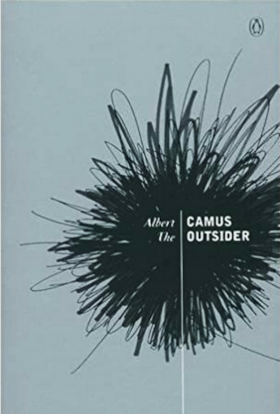
The Outsider
By Albert Camus
This was Camus' first novel, published in 1942 during the Nazi occupation of France. He was born and raised in French Algeria, to so-called pied-noir parents, but was living in Paris when Germany invaded.
It is a novella so quite short, and it is not hard to read, other than its unsettling protagonist. You are in the head of a very strange young man, Meursault, a strangeness seen clearly from the very first paragraph we read :
Mother died today. Or maybe yesterday, I don't know. I had a telegram from the home: 'Mother passed away. Funeral tomorrow. Yours sincerely.' That doesn't mean anything. It may have been yesterday.
Meursault appears to be quite unemotional and lacks interest in human relationships. An office worker in Algiers, he has a girlfriend and likes to go to the cinema and swim in the sea with her. When she asks if he loves her, he replies "it didn't mean anything and I probably didn't". Not the sort of answer any young woman would expect in the situation. He seems incapable of dissembling at all, or telling the little white lie that side-steps something disagreeable. He probably comes off as inhuman, especially to the lawyer who has to defend him later in the book :
He didn't understand me and he rather held it against me. I wanted to assure him that I was just like everyone else, exactly like everyone else. But it was all really a bit pointless and I couldn't be bothered.
Maybe the French have a word that fits with the above quote: ennui.
Meursault has need of a lawyer because he has killed a man: an Arab. It is unclear why, although there were tensions and intimations of threat. There is no passion in this crime, no anger or blood lust, but the hot sun during the day seems to have left him somewhat unbalanced.
Up until this point, I had not researched the book or its background; what was thought about it, or its place in any philosophical theory. I knew it had some connection with French intellectual thought and existentialism, particularly Sartre. Apparently, Camus rejected the "existentialism" label and preferred "absurdist". I always think it is best to approach a book without too many preconceptions. Today, we might make some diagnosis or other about Meursault's state of mind. There are plenty of those available.
A short, unsettling but worthwhile book. One of the "points" a novel supposedly has is putting the reader into the "head" of the characters and experiencing a different point of view. You certainly get that here.



